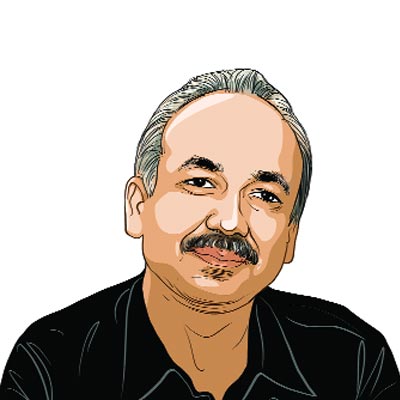Opinion May Day mayday
Andolan season is back in Nepal. The Unified Communist Party of Nepal-Maoists that spent weeks giving physical training to able-bodied villagers...
Andolan season is back in Nepal. The Unified Communist Party of Nepal-Maoists (UCPN-M) that spent weeks giving physical training to able-bodied villagers and to its cadre,has paraded its supporters in the capital for what it calls a decisive battle. But will it be decisive enough in the Maoists favour?
During a mammoth May Day rally in the capital,UCPN-M chief Prachanda announced that the victory is going to be theirs during this round of battle. People who had come from different parts of the country stayed put in the capital to hasten the promised victory. But their hope and determination has apparently dissipated faster this time. Apart from Kathmandus fluctuating climate,with intermittent rain in the past 48 hours driving away street protestors,the locals have refused to participate in the decisive battle. More important,the government and 22 out of 25 political parties represented in the constituent assembly have firmly stood by Prime Minister Madhav Nepal the man Maoists want out,and replaced by Prachanda sending a tough signal to the Maoists for the first time in four years that the politics of surrender before the former insurgents is over.
Another thing that goes totally against the Maoists is the changed behaviour of the international community,mainly UN agencies like the United Nations Mission to Nepal (UNMIN),the European Union and some Scandinavian countries. They have now warned the Maoists that any violence during the indefinite political strike that began on May 2 will not only imperil the peace and the constitution-writing process,but will also discredit the Maoists thoroughly in the eyes of the international community.
Indias tough stance is,of course,well known,and with hostility on the rise at home and abroad,Maoists have to bank solely on the terror that the Young Communist Leagues (YCL) can create on the street. But that will also require determination on the part of the Maoists to face a government that for once issued stern warnings that it would not hesitate to deploy the police,the paramilitary as well as the army (which remains confined within its barracks,as per the peace agreement).
Worse for the Maoists,divisions within the party have come to the fore as never before. At the rally,two prominent leaders Baburam Bhattarai and Narayankaji Shrestha Prakash,both vice-presidents were not allowed to address the crowd. Both leaders have been sidelined following their public statements that the party could offer somebody other than Prachanda as PM for a national unity government should Madhav Nepal resign.
Madhav Nepal made a categorical statement that he is willing to quit as soon as the parties agree on his substitute and an agenda to take the constitution-making process forward. The Maoists,however,insist that the government leadership should first be handed over to Prachanda and the rest should follow. That is clever tactics on their part,as it is very clear now that the constitution cannot be delivered within the May 28 deadline,and that the constituent assemblys life,if not extended,will expire. Securing government leadership now or around May 28 would give the Maoists an opportunity to rule without having to follow accountability to a House that will cease to exist. The Maoists are not a party that believes in the purity of means in acquiring power.
In fact,the Maoists made every effort to create a favourable situation for the power capture move. On May 1,Prachanda spoke publicly in praise of the Nepal army,saying that it and other nationalist institutions must work together with the Maoists. There was also a call that the army must defy any order from the present government that lacked legitimacy as well as the peoples mandate.
In the past few months,as the Maoists and pro-democracy forces have been pitted against each other,Prachanda apparently had a series of meetings with retired generals of the Nepal army who still wield enough clout in the institution besides political sympathisers and supporters of former King Gyanendra,and perhaps his close relatives. But the Maoists power or strength to bargain,as well as their credibility,has clearly nosedived.
That clearly leaves them with two options: either to ask for a face-saving solution from the government so that they can continue with political negotiation,or let their restive cadre go on a rampage and create a law and order problem thereby inviting all the consequences it might induce from the state. Either way,the losers this time round will be the Maoists.
yubaraj.ghimire@expressindia.com


